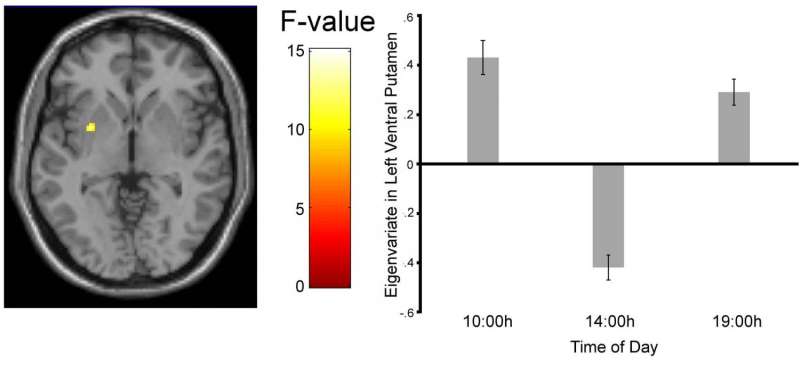Afternoon slump in reward response

Activation of a reward-processing brain region peaks in the morning and evening and dips at 2 p.m., finds a study of healthy young men published in The Journal of Neuroscience. This finding may parallel the drop in alertness people tend to feel in mid-afternoon.
Greg Murray and colleagues compared activation of the brain's reward system in 16 men during a gambling task at 10 a.m., 2 p.m. and 7 p.m. They found that activation in the left putamen was lowest in the early afternoon. The result contrasts with previous research showing that people report being in the best mood—a subjective measure of reward activation—at this time. The authors suggest that activation is greater in the morning and evening because rewards are not expected at these times.
Understanding the timing of reward response could have implications for the treatment of disorders in which symptoms fluctuate throughout the day, such as depression, substance abuse and sleep disturbances. This work also calls into question neuroimaging studies that do not control for or report the time of day when scanning took place.
More information: Time of day differences in neural reward functioning in healthy young men, The Journal of Neuroscience (2017). DOI: 10.1523/JNEUROSCI.0918-17.2017
















